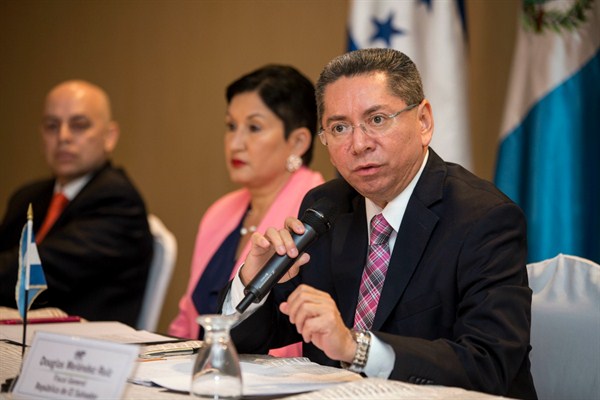El Salvador’s legislature last month declined to reappoint Attorney General Douglas Melendez for a second term. The move is widely viewed as retaliation for Melendez’s anti-corruption crusade, which ensnared a number of high-profile Salvadoran political figures, including his predecessor as attorney general and several former presidents. In an interview with WPR, Eric Olson, a Latin America specialist at the Seattle International Foundation, discusses Melendez’s tenure as attorney general and the political impact of El Salvador’s “endemic” corruption, including on next month’s presidential election.
World Politics Review: How pervasive is corruption in El Salvador, and what are its political ramifications?
Eric Olson: Most public opinion surveys and assessments of corruption and the rule of law in El Salvador suggest it’s a very important political issue for El Salvador’s upcoming presidential election. El Salvador ranks 112th out of 185 countries surveyed in Transparency International’s Corruption Perceptions Index for 2017, placing it in the bottom third both worldwide and among countries in the Western Hemisphere. A public opinion survey from El Salvador’s Technological University released in early December found that concerns about corruption where among the top five issues for Salvadoran voters heading into the presidential election, just behind security concerns and bread-and-butter issues like the economy and access to health care. It is likely not a coincidence that the presidential candidate leading in the polls, Nayib Bukele, is also rated the most honest candidate by those surveyed.

